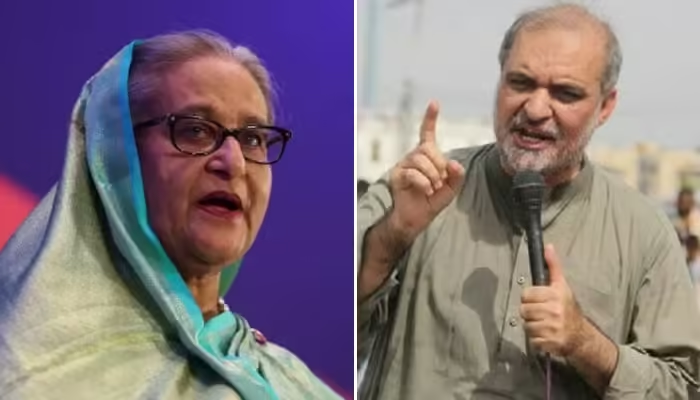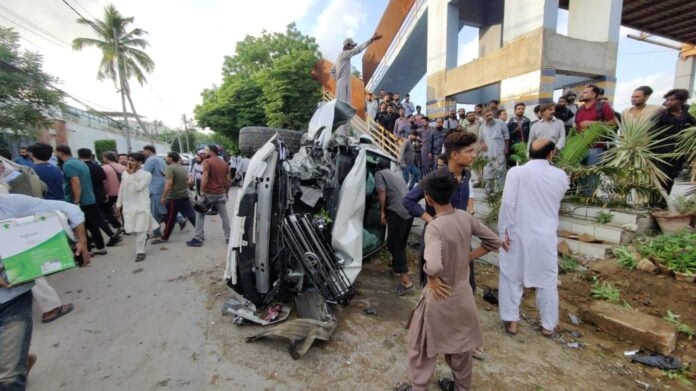Amir Jamaat-e-Islami Hafiz Naeem has strongly criticized former Bangladeshi Prime Minister Hasina Wajid, describing her rule as oppressive and highlighting the challenges faced by the Bangladeshi people during her tenure. In a social media response, Hafiz Naeem articulated the widespread dissatisfaction and resistance against Hasina Wajid’s government, which he claims was propped up by Indian support and marked by significant human rights abuses.
Hasina Wajid’s Rule and Public Opposition
Hasina Wajid, who led Bangladesh for 15 years, has been accused by her critics of ruling with an iron fist, using force to maintain her position and suppress dissent. Hafiz Naeem pointed out that Hasina made enemies of her own countrymen by ignoring their voices and prioritizing external support over domestic harmony. Her administration has often been criticized for its alleged human rights violations, including the suppression of political opposition and media freedom.
The perception of Hasina Wajid’s regime as a puppet government controlled by Indian interests further alienated many Bangladeshis. Hafiz Naeem emphasized that her reliance on India undermined the sovereignty of Bangladesh and created deep resentment among the populace.
The End of an Era
The end of Hasina Wajid’s rule came after a month of violent protests that resulted in hundreds of deaths. The mass demonstrations were a culmination of years of growing unrest and dissatisfaction among the Bangladeshi people, who were increasingly disillusioned by the lack of political freedom and economic opportunities. The widespread protests reflected a broad-based demand for change and real democracy.
Former Pakistani diplomats have also weighed in on the situation, offering insights into the possible reasons for Hasina Wajid’s downfall. They pointed to the prolonged period of autocratic governance, economic mismanagement, and the alienation of significant segments of the population as critical factors that contributed to the regime’s collapse.
Future Prospects for Bangladesh
Hafiz Naeem expressed hope for the future of Bangladesh, praying for stability, prosperity, and the establishment of genuine democracy. He lauded the sacrifices and struggles of the Bangladeshi people, attributing the end of Hasina Wajid’s “fascist” government to their resilience and determination. The Jamaat-e-Islami leader called for international support and solidarity with the Bangladeshi people as they embark on this new chapter in their history.
The path forward for Bangladesh will undoubtedly be challenging. The country must address the wounds inflicted by years of authoritarian rule and work towards rebuilding trust in its institutions. There is a pressing need for inclusive political dialogue, the protection of human rights, and the establishment of mechanisms that ensure accountability and justice for past abuses.
The Role of International Community
The international community has a crucial role to play in supporting Bangladesh during this transition. It should encourage the new leadership to uphold democratic principles, respect human rights, and foster an environment where all political voices can be heard. International aid and development programs should focus on strengthening civil society, improving governance, and promoting economic development that benefits all Bangladeshis.
Moreover, regional actors, including India, must respect Bangladesh’s sovereignty and support its democratic aspirations without exerting undue influence. A stable and democratic Bangladesh is in the best interest of the entire region, contributing to peace, security, and economic prosperity.
The resignation and flight of Hasina Wajid mark a significant turning point for Bangladesh. As the country moves beyond this tumultuous period, there is an opportunity to build a more inclusive, democratic, and prosperous future. The sacrifices of the Bangladeshi people have paved the way for change, and it is now up to the new leadership and the international community to support this transformation.
Hafiz Naeem’s reflections underscore the resilience and determination of the Bangladeshi people. His call for prayers and support resonates with the aspirations of millions who seek a better future for their nation. The journey ahead will require unity, perseverance, and a steadfast commitment to the principles of democracy and justice.



